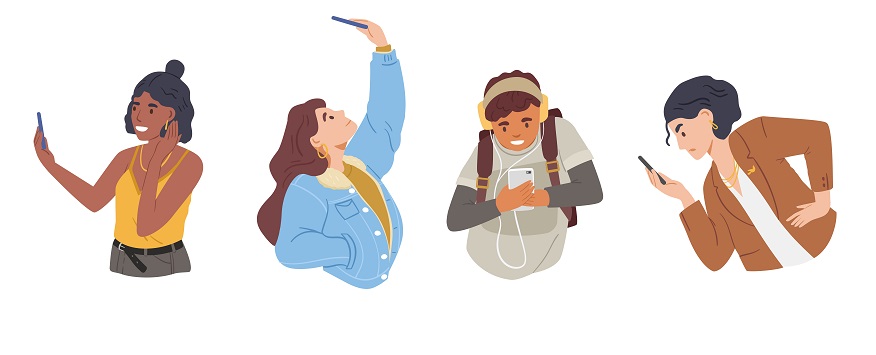If you’re job-hunting, you need to know about a scam that could end up costing you thousands of dollars – not to mention your faith in humanity and a good chunk of your time. In June, scammers started targeting communications professionals with “job leads” and fake job offers at top agencies like Weber Shandwick and MKTG.
The scam in question was a variation on the well-worn “Nigerian prince will send you a check for $100,000; you keep $90,000 but wire him $10K.” The difference was that it was tailored and targeted to prey on hopeful job seekers.
The Details
The scam artists placed bogus want-ads on ZipRecruiter. The jobs were legitimate-sounding opportunities (e.g., work-from-home graphic designer) with high-profile and well-respected agencies. The ads themselves used professional-looking logos, real employee names, and even language copied from the real agency’s website. In a few cases, the scammers sent emails to unsuspecting individuals.
Once a job seeker replied to the bogus ad, the scammer set up a job interview via Google Hangout. After a long and fairly convincing interview, an offer letter (also fairly persuasive) was sent. Then the job seeker was mailed a check to be deposited and used to purchase computers and equipment to furnish a home office.
The catch is, there’s no job. The check is from a non-existent account, and of course, it bounces after the job-seeker makes the expensive purchase through a vendor that is linked to the con artist and doesn’t send the furniture.
If you make it to the end of the process, you’ve been duped out of your money, your credit card numbers, and your social security number.
How to Protect Yourself
Even though this particular scam was brought to light and the agencies unfairly implicated have gone to great lengths to inform and warn job seekers, scams are a lot like cockroaches: Where there’s one, there’s probably 1,000 more of them, and the minute you get rid of one of them, another pops up instantly to take its place. Be ready so you won’t get taken by the next one.
Never, ever give out your personal information online – especially your social security number or banking information. If anyone asks, consider it a giant red flag.
If you start smelling a rat, pay attention to details. If you’re applying for a job at a large and reputable company but all of the communications are sent from someone at a Gmail account, this could be a sign that not everything is as it seems. Cybersecurity experts McAfee have a thorough checklist on recognizing fake emails that is a must read.
Similarly, watch out for communications of any kind riddled with misspellings, typos, and poor grammar.
Beware of any ad that says IMMEDIATE HIRE. If you’ve ever interviewed at large agency, you know the bureaucracy involved – almost no one is EVER hired after a single interview. One candidate interviewing for a graphic designer position reported that the interviewer never asked about his portfolio.
Likewise, most legitimate companies will never hire via a chat app.
If you’re working with a recruiter and they ask for money upfront, run. Recruiters make their money when a company hires their candidates.
How to Continue Your Job Search
Even when they’re 100% legitimate, applying to an online job posting can make you feel like you’re throwing your resume into a bottomless pit. Instead, energize your job search and get more rewards for your efforts.
If you do decide to apply to a job online, reach out to your network to learn more about a job. Your odds are so much better if you can get a real email address to send your resume to – or, better yet, a friend or contact who’ll put in a good word for you when they forward your resume.
Find positions through your friends and colleagues. Statistics vary, but anywhere from 70 – 85% of all jobs are found through word-of-mouth and networking. Many companies don’t even publish some of the best jobs, so the only way to learn about them is from someone with some ‘insider information.’
Above all, trust your gut. Always be positive and optimistic about your job search. Remember, cases like this are the exception, not the rule. However, remind yourself that if something sounds too good to be true, it probably is.
Lisa is a Creative Circle candidate and seasoned advertising copywriter who lives in Los Angeles. Her background includes both in-house and agency work on Fortune 500 and global accounts in the consumer and healthcare/pharmaceutical fields. She excels at words, fashion, and cats. If you want to work with Lisa, contact Creative Circle Los Angeles.




It’s exactly what happen to me, as promised a job and a legit looking Offer Letter (from Landmark Surveying & engineering, inc.) Hangouts chat interview. They send me check for the equipmet, my mistake was I deposited BUT I didn’t do any “cashier checks” the scammer asking me to do and I didn’t take out any from that check as soon as the bank alarmed me with fraud. I am afraid that I send them (scammer) my license ID, now… do I need a replacement license ID, or to report it lost.? And go to DMV to get a replacement. Is this a necessary? What should I do?
Any help will be such a great, I’m just one of the poor seeking job that falls under these scumbag.